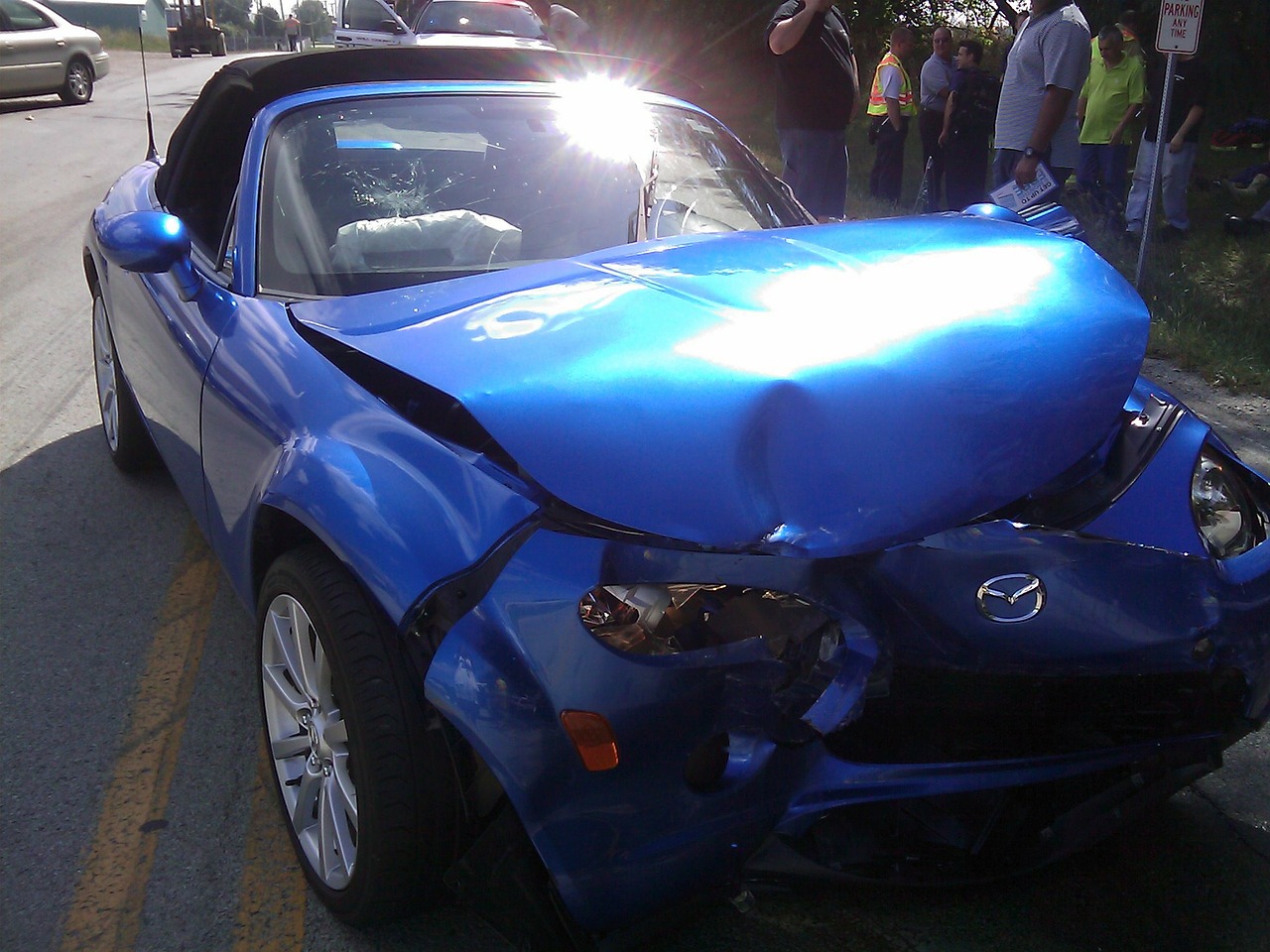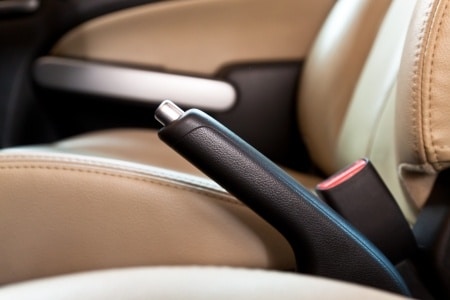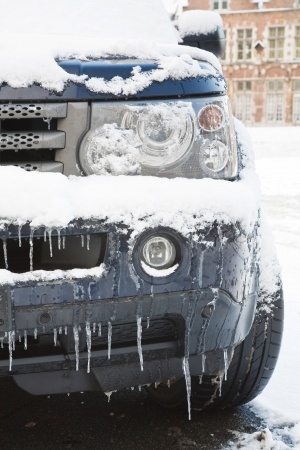Keeping Calm Post-Accident
 If you are involved in a vehicular accident, you might be upset and disoriented. However, your negative feelings will only worsen if you are not calm. In this article, we will offer you practical tips for thinking clearly and staying calm following an accident
1. Make Sure Everyone Is Okay
No matter how major or minor the damage is to your car and/or the car of whoever you collided with, the first thing you should do is make sure no one is seriously hurt. Confirm that you can move okay and that the other people involved aren’t seriously injured. If medical attention is needed, call an ambulance right away.
2. Take Deep Breaths
The easiest way to calm down is to breathe. These should not be short, shallow breaths (hyperventilating) but long, slow ones. Right after the accident, you might want to try square breathing. Here, you breathe in through your nose slowly to a count of four, hold it for another count of four, exhale to a count of four and then wait for another count of four before starting again. Do this routine four times in total or until you feel calm enough.
3. Be Careful About What You Say
If you’re sure you weren’t at fault, then don’t say anything that implies you are. If the other person involved admits fault, then you won’t have to pay a deductible for any damages you’ve incurred. You might be worked up and feel an urge to make an offhand remark that you are at fault, but you need to resist the urge. Furthermore, do not admit fault when on the phone with your insurance provider, as they are likely to be recording your call.
4. Confirm That You Have Everything You Need
When a police officer arrives on the scene, they will ask you for your license, vehicle registration, and proof of insurance. Assuming you have these things in their proper place (license in your wallet, registration and insurance in a safe place like the glove compartment), you will be able to proceed easily. Make sure your license, registration, and insurance are all up to date, as you could have your car towed and face legal consequences for driving with any of those expired.
5. Assess Vehicular Damages
When you are involved in a collision, you might assume the worse at the moment of impact. After you’ve established that everyone is okay, see how the condition of both vehicles is. Be clear about this with your insurance provider. More likely than not, it’s not as bad as you imagined it was.
6. Stay Relaxed in the Days After
You might be able to drive home following the accident without any problems but later find yourself unusually anxious and rattled; this is normal following an accident. Find ways to unwind such as reading and listening to soothing music. It might do you good to take some time off driving for a few days as well. If you find yourself unable to relax and drive even after a few days, consider getting therapy for PTSD.
We hope this helps if you are ever involved in a vehicular accident. While it might be hard to stay calm at first, by taking a few deep breaths and thinking before you speak, you will be able to get through your accident feeling okay.
If you are involved in a vehicular accident, you might be upset and disoriented. However, your negative feelings will only worsen if you are not calm. In this article, we will offer you practical tips for thinking clearly and staying calm following an accident
1. Make Sure Everyone Is Okay
No matter how major or minor the damage is to your car and/or the car of whoever you collided with, the first thing you should do is make sure no one is seriously hurt. Confirm that you can move okay and that the other people involved aren’t seriously injured. If medical attention is needed, call an ambulance right away.
2. Take Deep Breaths
The easiest way to calm down is to breathe. These should not be short, shallow breaths (hyperventilating) but long, slow ones. Right after the accident, you might want to try square breathing. Here, you breathe in through your nose slowly to a count of four, hold it for another count of four, exhale to a count of four and then wait for another count of four before starting again. Do this routine four times in total or until you feel calm enough.
3. Be Careful About What You Say
If you’re sure you weren’t at fault, then don’t say anything that implies you are. If the other person involved admits fault, then you won’t have to pay a deductible for any damages you’ve incurred. You might be worked up and feel an urge to make an offhand remark that you are at fault, but you need to resist the urge. Furthermore, do not admit fault when on the phone with your insurance provider, as they are likely to be recording your call.
4. Confirm That You Have Everything You Need
When a police officer arrives on the scene, they will ask you for your license, vehicle registration, and proof of insurance. Assuming you have these things in their proper place (license in your wallet, registration and insurance in a safe place like the glove compartment), you will be able to proceed easily. Make sure your license, registration, and insurance are all up to date, as you could have your car towed and face legal consequences for driving with any of those expired.
5. Assess Vehicular Damages
When you are involved in a collision, you might assume the worse at the moment of impact. After you’ve established that everyone is okay, see how the condition of both vehicles is. Be clear about this with your insurance provider. More likely than not, it’s not as bad as you imagined it was.
6. Stay Relaxed in the Days After
You might be able to drive home following the accident without any problems but later find yourself unusually anxious and rattled; this is normal following an accident. Find ways to unwind such as reading and listening to soothing music. It might do you good to take some time off driving for a few days as well. If you find yourself unable to relax and drive even after a few days, consider getting therapy for PTSD.
We hope this helps if you are ever involved in a vehicular accident. While it might be hard to stay calm at first, by taking a few deep breaths and thinking before you speak, you will be able to get through your accident feeling okay.
 If you are involved in a vehicular accident, you might be upset and disoriented. However, your negative feelings will only worsen if you are not calm. In this article, we will offer you practical tips for thinking clearly and staying calm following an accident
1. Make Sure Everyone Is Okay
No matter how major or minor the damage is to your car and/or the car of whoever you collided with, the first thing you should do is make sure no one is seriously hurt. Confirm that you can move okay and that the other people involved aren’t seriously injured. If medical attention is needed, call an ambulance right away.
2. Take Deep Breaths
The easiest way to calm down is to breathe. These should not be short, shallow breaths (hyperventilating) but long, slow ones. Right after the accident, you might want to try square breathing. Here, you breathe in through your nose slowly to a count of four, hold it for another count of four, exhale to a count of four and then wait for another count of four before starting again. Do this routine four times in total or until you feel calm enough.
3. Be Careful About What You Say
If you’re sure you weren’t at fault, then don’t say anything that implies you are. If the other person involved admits fault, then you won’t have to pay a deductible for any damages you’ve incurred. You might be worked up and feel an urge to make an offhand remark that you are at fault, but you need to resist the urge. Furthermore, do not admit fault when on the phone with your insurance provider, as they are likely to be recording your call.
4. Confirm That You Have Everything You Need
When a police officer arrives on the scene, they will ask you for your license, vehicle registration, and proof of insurance. Assuming you have these things in their proper place (license in your wallet, registration and insurance in a safe place like the glove compartment), you will be able to proceed easily. Make sure your license, registration, and insurance are all up to date, as you could have your car towed and face legal consequences for driving with any of those expired.
5. Assess Vehicular Damages
When you are involved in a collision, you might assume the worse at the moment of impact. After you’ve established that everyone is okay, see how the condition of both vehicles is. Be clear about this with your insurance provider. More likely than not, it’s not as bad as you imagined it was.
6. Stay Relaxed in the Days After
You might be able to drive home following the accident without any problems but later find yourself unusually anxious and rattled; this is normal following an accident. Find ways to unwind such as reading and listening to soothing music. It might do you good to take some time off driving for a few days as well. If you find yourself unable to relax and drive even after a few days, consider getting therapy for PTSD.
We hope this helps if you are ever involved in a vehicular accident. While it might be hard to stay calm at first, by taking a few deep breaths and thinking before you speak, you will be able to get through your accident feeling okay.
If you are involved in a vehicular accident, you might be upset and disoriented. However, your negative feelings will only worsen if you are not calm. In this article, we will offer you practical tips for thinking clearly and staying calm following an accident
1. Make Sure Everyone Is Okay
No matter how major or minor the damage is to your car and/or the car of whoever you collided with, the first thing you should do is make sure no one is seriously hurt. Confirm that you can move okay and that the other people involved aren’t seriously injured. If medical attention is needed, call an ambulance right away.
2. Take Deep Breaths
The easiest way to calm down is to breathe. These should not be short, shallow breaths (hyperventilating) but long, slow ones. Right after the accident, you might want to try square breathing. Here, you breathe in through your nose slowly to a count of four, hold it for another count of four, exhale to a count of four and then wait for another count of four before starting again. Do this routine four times in total or until you feel calm enough.
3. Be Careful About What You Say
If you’re sure you weren’t at fault, then don’t say anything that implies you are. If the other person involved admits fault, then you won’t have to pay a deductible for any damages you’ve incurred. You might be worked up and feel an urge to make an offhand remark that you are at fault, but you need to resist the urge. Furthermore, do not admit fault when on the phone with your insurance provider, as they are likely to be recording your call.
4. Confirm That You Have Everything You Need
When a police officer arrives on the scene, they will ask you for your license, vehicle registration, and proof of insurance. Assuming you have these things in their proper place (license in your wallet, registration and insurance in a safe place like the glove compartment), you will be able to proceed easily. Make sure your license, registration, and insurance are all up to date, as you could have your car towed and face legal consequences for driving with any of those expired.
5. Assess Vehicular Damages
When you are involved in a collision, you might assume the worse at the moment of impact. After you’ve established that everyone is okay, see how the condition of both vehicles is. Be clear about this with your insurance provider. More likely than not, it’s not as bad as you imagined it was.
6. Stay Relaxed in the Days After
You might be able to drive home following the accident without any problems but later find yourself unusually anxious and rattled; this is normal following an accident. Find ways to unwind such as reading and listening to soothing music. It might do you good to take some time off driving for a few days as well. If you find yourself unable to relax and drive even after a few days, consider getting therapy for PTSD.
We hope this helps if you are ever involved in a vehicular accident. While it might be hard to stay calm at first, by taking a few deep breaths and thinking before you speak, you will be able to get through your accident feeling okay.  If you are involved in a vehicular accident, you might be upset and disoriented. However, your negative feelings will only worsen if you are not calm. In this article, we will offer you practical tips for thinking clearly and staying calm following an accident
1. Make Sure Everyone Is Okay
No matter how major or minor the damage is to your car and/or the car of whoever you collided with, the first thing you should do is make sure no one is seriously hurt. Confirm that you can move okay and that the other people involved aren’t seriously injured. If medical attention is needed, call an ambulance right away.
2. Take Deep Breaths
The easiest way to calm down is to breathe. These should not be short, shallow breaths (hyperventilating) but long, slow ones. Right after the accident, you might want to try square breathing. Here, you breathe in through your nose slowly to a count of four, hold it for another count of four, exhale to a count of four and then wait for another count of four before starting again. Do this routine four times in total or until you feel calm enough.
3. Be Careful About What You Say
If you’re sure you weren’t at fault, then don’t say anything that implies you are. If the other person involved admits fault, then you won’t have to pay a deductible for any damages you’ve incurred. You might be worked up and feel an urge to make an offhand remark that you are at fault, but you need to resist the urge. Furthermore, do not admit fault when on the phone with your insurance provider, as they are likely to be recording your call.
4. Confirm That You Have Everything You Need
When a police officer arrives on the scene, they will ask you for your license, vehicle registration, and proof of insurance. Assuming you have these things in their proper place (license in your wallet, registration and insurance in a safe place like the glove compartment), you will be able to proceed easily. Make sure your license, registration, and insurance are all up to date, as you could have your car towed and face legal consequences for driving with any of those expired.
5. Assess Vehicular Damages
When you are involved in a collision, you might assume the worse at the moment of impact. After you’ve established that everyone is okay, see how the condition of both vehicles is. Be clear about this with your insurance provider. More likely than not, it’s not as bad as you imagined it was.
6. Stay Relaxed in the Days After
You might be able to drive home following the accident without any problems but later find yourself unusually anxious and rattled; this is normal following an accident. Find ways to unwind such as reading and listening to soothing music. It might do you good to take some time off driving for a few days as well. If you find yourself unable to relax and drive even after a few days, consider getting therapy for PTSD.
We hope this helps if you are ever involved in a vehicular accident. While it might be hard to stay calm at first, by taking a few deep breaths and thinking before you speak, you will be able to get through your accident feeling okay.
If you are involved in a vehicular accident, you might be upset and disoriented. However, your negative feelings will only worsen if you are not calm. In this article, we will offer you practical tips for thinking clearly and staying calm following an accident
1. Make Sure Everyone Is Okay
No matter how major or minor the damage is to your car and/or the car of whoever you collided with, the first thing you should do is make sure no one is seriously hurt. Confirm that you can move okay and that the other people involved aren’t seriously injured. If medical attention is needed, call an ambulance right away.
2. Take Deep Breaths
The easiest way to calm down is to breathe. These should not be short, shallow breaths (hyperventilating) but long, slow ones. Right after the accident, you might want to try square breathing. Here, you breathe in through your nose slowly to a count of four, hold it for another count of four, exhale to a count of four and then wait for another count of four before starting again. Do this routine four times in total or until you feel calm enough.
3. Be Careful About What You Say
If you’re sure you weren’t at fault, then don’t say anything that implies you are. If the other person involved admits fault, then you won’t have to pay a deductible for any damages you’ve incurred. You might be worked up and feel an urge to make an offhand remark that you are at fault, but you need to resist the urge. Furthermore, do not admit fault when on the phone with your insurance provider, as they are likely to be recording your call.
4. Confirm That You Have Everything You Need
When a police officer arrives on the scene, they will ask you for your license, vehicle registration, and proof of insurance. Assuming you have these things in their proper place (license in your wallet, registration and insurance in a safe place like the glove compartment), you will be able to proceed easily. Make sure your license, registration, and insurance are all up to date, as you could have your car towed and face legal consequences for driving with any of those expired.
5. Assess Vehicular Damages
When you are involved in a collision, you might assume the worse at the moment of impact. After you’ve established that everyone is okay, see how the condition of both vehicles is. Be clear about this with your insurance provider. More likely than not, it’s not as bad as you imagined it was.
6. Stay Relaxed in the Days After
You might be able to drive home following the accident without any problems but later find yourself unusually anxious and rattled; this is normal following an accident. Find ways to unwind such as reading and listening to soothing music. It might do you good to take some time off driving for a few days as well. If you find yourself unable to relax and drive even after a few days, consider getting therapy for PTSD.
We hope this helps if you are ever involved in a vehicular accident. While it might be hard to stay calm at first, by taking a few deep breaths and thinking before you speak, you will be able to get through your accident feeling okay. 

